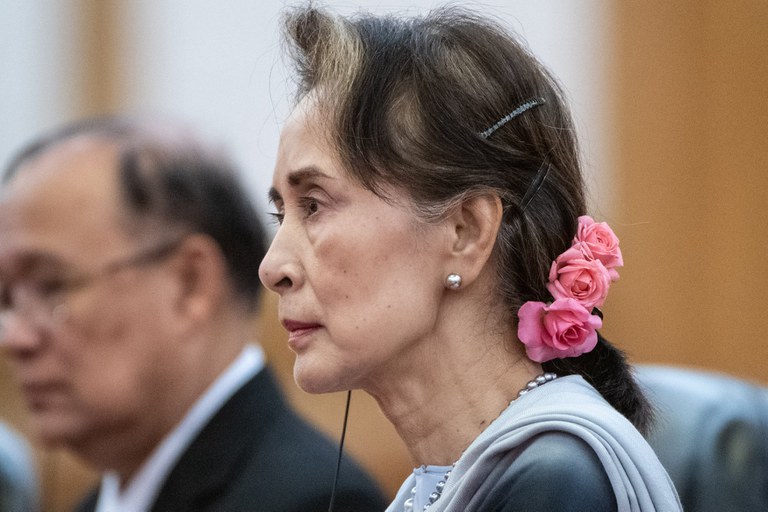Thai prime minister downplays Myanmar aircraft entering nation’s airspace
Prime Minister Prayuth Chan-o-cha and the Royal Thai Air Force chief on Friday played down a brief incursion by a Burmese fighter jet into the nation’s airspace amid fierce fighting across the border, saying Myanmar and Thailand have “a good relationship.” Thailand’s air force scrambled two F-16 fighter jets to its northwestern border on Thursday after radar captured a Myanmar air force jet briefly violating Thai airspace during an aerial assault against Karen rebels, according to an air force statement that day. It also said Myanmar helicopters were detected in the area but did not appear to enter Thai airspace. “[They] admitted it and apologized. No intention, no determination so,” Prayuth said Friday, adding that the jet turned and overshot into Thailand. “We scrambled our aircraft to warn him as standard operating procedure. Today the military envoys have talked, and they apologized. “It looks like a big deal but it’s up to us to not make a mountain out of a mole hill – we have a good relationship.” Meanwhile, Thai Air Chief Marshal Napadej Thupatemi said he was irate over the incursion, but it was inadvertent. “I tell you frankly, like you, I was irate too, perhaps even more than you people. But we have contacted top commanders of Myanmar forces, asking them be mindful about their operation,” he said. “In air defense, there are three steps – identify friend or foe, intercept, and destroy if necessary,” he said. “Bear in mind, Myanmar is a friend. If a friend inadvertently trespasses our turf and we shoot him dead, that is way too excessive.” Fierce clashes The incursion occurred a day after Myanmar’s junta chief, Senior Gen. Min Aung Hlaing, hosted a delegation headed by Lt. Gen. Apichet Suesat of the Royal Thai Army in Myanmar’s capital Naypyidaw for the 34th meeting of the Thailand-Myanmar Regional Border Committee, according to a report by the official Global New Light of Myanmar. The two sides discussed ways to strengthen cooperation between defense forces and anti-terrorism measures to improve stability along the border, the report said. Days of fierce clashes between Myanmar’s military and anti-junta forces in Kayin state have left more than a dozen anti-junta fighters dead and several wounded on both sides of the conflict, sources in the region said Thursday. The fighting began on June 26 when pro-democracy People’s Defense Force (PDF) paramilitaries and fighters with the ethnic Karen National Defense Organization/Karen National Liberation Army (KNDO/KNLA) launched a joint attack on a military outpost near Myawaddy township’s Ukrithta village, according to a report by the pro-military Myawaddy newspaper. The attack prompted a military retaliation that included artillery fire and airstrikes, and more junta troops were being deployed to the area, the report said. A rebel officer said junta jets were attacking positions in the area “nine or ten times a day.” About 200 residents of Myanmar fled across the border into Tak province on Wednesday, and two injured Burmese civilians were treated in Phob Phra district, local Thai officials said. Border communities Thai border communities have been affected by intermittent fighting in neighboring Myanmar since the 2021 coup, and in previous clashes between rebel groups and the Burmese government. A Karen source in Tak province’s Mae Sot district said more than 1,000 Karen refugees who fled the current conflict were still in Thailand. Southeast Asian countries have been criticized for not doing more to pressure Myanmar to return to democracy after the military coup in Feb. 2021 that ousted an elected government, and amid a brutal campaign to suppress protesters and armed opposition to the junta since then. A “five-point consensus” agreed by the 10-member regional bloc ASEAN in April 2020 to put Myanmar on the road to democracy was never enacted, in part, critics say, because the bloc operates by consensus and includes authoritarian governments that remain friendly with the junta. BenarNews is an RFA-affiliated online news service.





